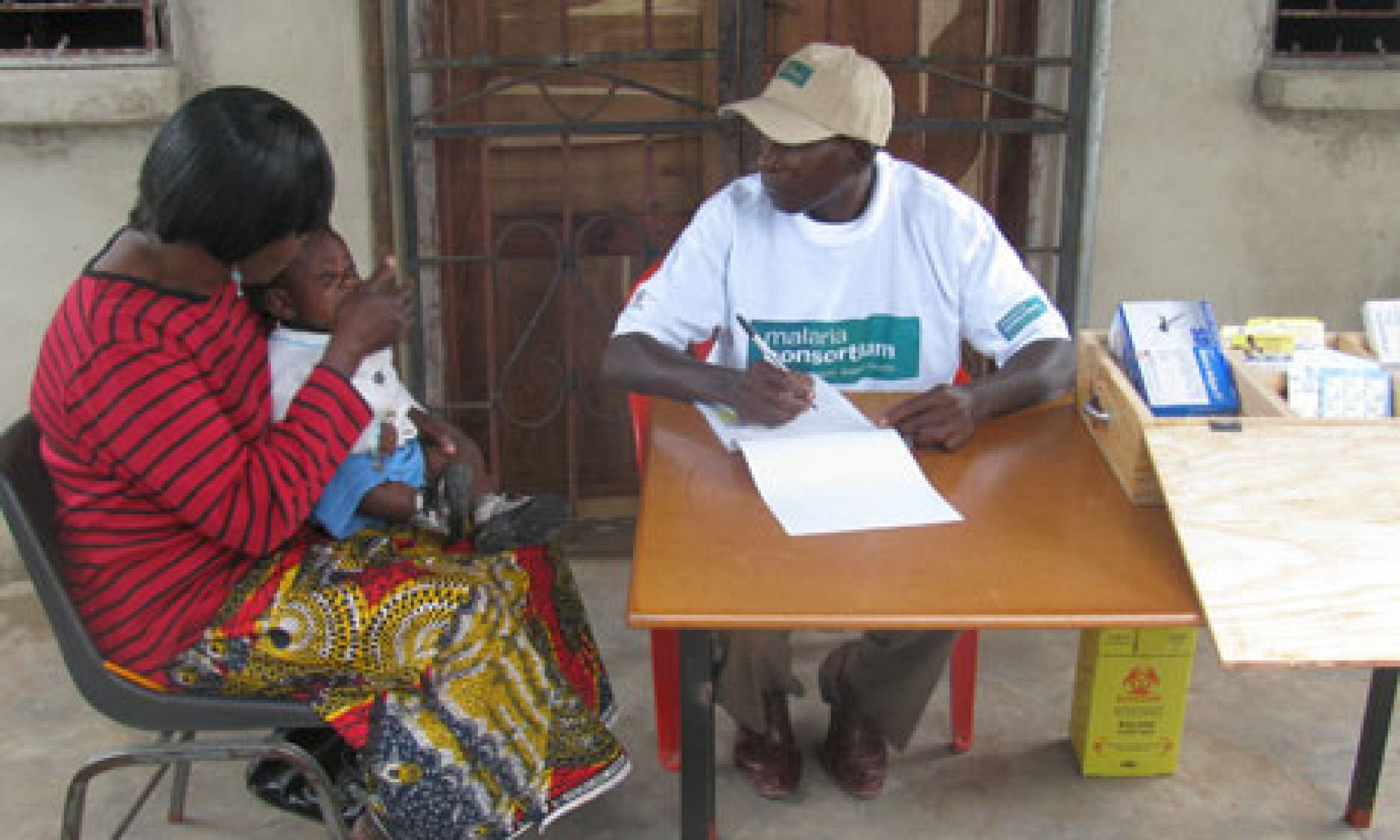
Getting rational about pneumonia
1 January 2014"Whilst it is the responsibility of individuals to ensure that drugs are used rationally, the consequences of irrational use are global," says Kirstie Graham. Photograph: Malaria Consortium
Malaria Consortium has been conducting research in Zambia to understand how antibiotics are being used at community level to treat pneumonia, a major killer of children under the age of five in Africa. The study is being carried out under Comdis-HSD, a UKAid funded research partnership between academic institutions and NGOs, and findings from the study will be used to inform programmes working to improve child health, through the integrated community case management (ICCM) of common childhood diseases. We spoke to Malaria Consortium technical officer, Dr Kirstie Graham, to find out more.
Why focus on pneumonia?
Pneumonia is the leading cause of child death globally and is alone responsible for approximately 1.2 million deaths of children under five each year. That equates to around 18% of all deaths of this age group worldwide. In Zambia, pneumonia is responsible for approximately 14% of child deaths.
What is the Comdis-HSD study looking at in Zambia?
In Zambia, Comdis-HSD is looking specifically at how to promote the 'rational use' of antibiotics through one form of intervention that is increasingly being employed to reduce child mortality in rural Africa, 'integrated community case management' of childhood diseases. ICCM involves training and supporting volunteers from the community to provide a limited range of critical health services in rural areas, where young children are dying from easily preventable illnesses. The approach generally focuses on three common but easy to treat diseases – pneumonia, malaria and diarrhoea – responsible for so many child deaths.
Through observation, interviews and discussion, our Comdis-HSD study is looking to identify the behaviours, attitudes and influences that could affect how antibiotics are being prescribed and used by community health workers, parents and caregivers.
You mention 'rational use of antibiotics'. Can you explain what that means?
The 'rational use' of antibiotics means that they should be prescribed and taken properly. For the health workers, that means that they should only prescribe antibiotics for patients with diseases that can be treated with antibiotics, as well as prescribing them for the correct dose and length of course. Antibiotics should not be misused, for example, for simple self-limiting infections such as the common cold. Rational use of antibiotics also applies the patient themselves. The patient must take the drugs as intended – tablets should be taken at the correct time at the instructed dose, and the full course of treatment should be completed.
Why is 'rational use' so important?
Rational use of antibiotics is essential to ensure that drugs remain effective in the longer term. If antibiotics are not prescribed and used properly, there is a risk that the bacteria causing the disease will not be completely killed through the treatment. This means that although an individual's symptoms may disappear, over time this strain of bacteria will begin to develop resistance to the antibiotic being used to kill it. The individual in question will not be cured from their illness and could develop severe illness.
Whilst it is the responsibility of individuals to ensure that drugs are used rationally, the consequences of irrational use are global. Essentially, the spread of this resistance will result in individuals, who may have themselves correctly used antibiotics, not being cured from a disease that was once treatable. Read more about the dangers of the spread of drug resistance here.
What is the link between ICCM and rational use of antibiotics?
As people often access antibiotics through private providers, who are often unregulated, potentially untrained and without diagnostic skills or equipment, ICCM can help to support the rational use of antibiotics at community level as the volunteer health workers are trained to diagnose diseases and give the correct treatment. Community health workers are also able to give guidance on how that treatment should be taken at the community level, in local languages.
What do you hope will be the outcome of this study?
We hope to improve general understanding and develop recommendations for ways in which community level interventions, such as ICCM, can be used to support efforts to control the spread of resistance to antibiotics and ensure the continued effectiveness of these medicines. We also hope to reduce the number of child deaths and the long term impact of these diseases by limiting the use of these vital drugs to treating only those cases that will benefit. Findings from the study will be published in an open access journal as well as on this site.
Keywords: Drug resistance
Latest news
- Malaria Consortium honoured by Ugandan government for contribution to combat malaria23rd April 2024
- International summit calls for AMR accountability in public health interventions21st March 2024
- Global SMC community celebrates new milestone at SMC Alliance Annual Meeting in Nigeria6th March 2024
- Scaling up key interventions could halve pneumonia-related childhood mortality13th February 2024
- Malaria Consortium and eGov Foundation join Mozambique’s national malaria programme to digitalise seasonal malaria chemoprevention campaigns8th February 2024
- World’s first malaria vaccine rollout launched in Cameroon22nd January 2024